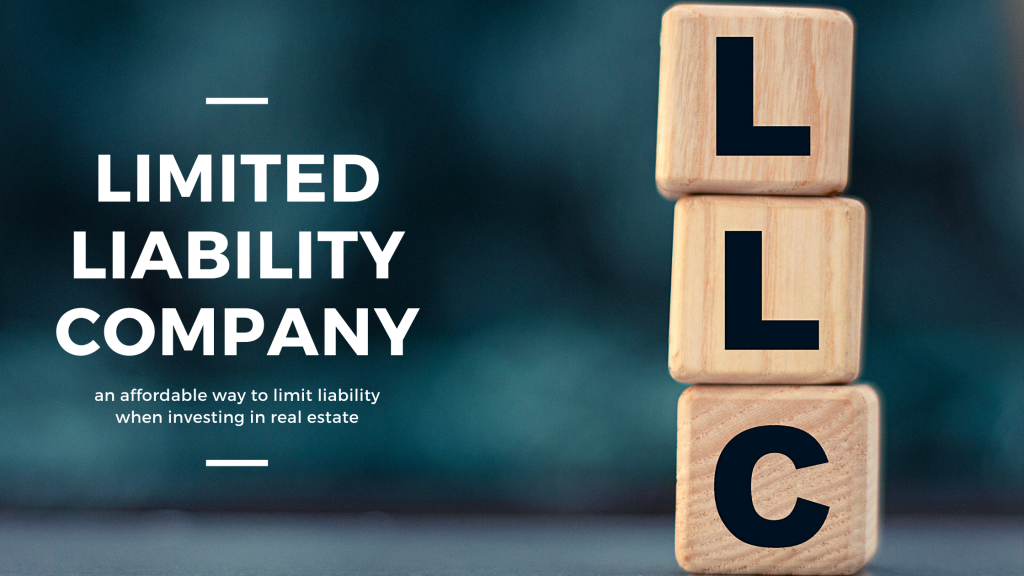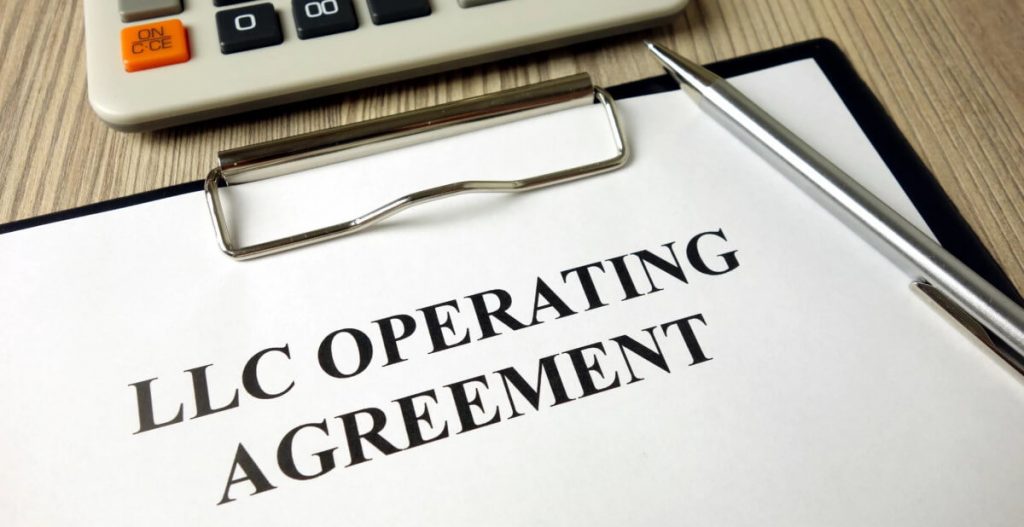Quick Summary:
- Choosing a business entity is key to protecting your personal and business assets
- Different entities will have different tax pros and cons for real estate
Table of Contents
If you’re a part-time real estate investor looking to make your investments a full-time business, it’ll be important to consider setting up a business entity. A business entity or legal structure is an essential part of protecting your real estate assets from potential risks. Real estate may be one of the world’s safest investment classes, but that doesn’t mean that there is no risk involved at all. The investor that has a business entity protecting their assets stands a much greater chance of mitigating these risks or avoiding them altogether.
There are multiple structures available that are suited to real estate businesses: S corporations, C corporations, Limited Liability Partnerships. These are all structures that are suitable for having multiple partners, while a single-owned business might choose a Limited Liability Company or sole proprietorship. So, at which stage is it important to start looking deeper into business entities for your real estate investments?
When your plan is to own only one income-producing property, a formal business entity may not be necessary since your risks are limited. However, if you want to grow your portfolio and scale up your investments, you’ll need to think about protecting your assets. As an investor, your level of risk will go up significantly as you add more properties to your portfolio, and you’ll need to manage them all effectively to ensure they remain profitable. You may even need to protect different business assets from each other too. Easier said than done!
Taking on a partner investor or two can be a great way to scale your business, and it’s crucial to think about a business entity as forming part of those partnerships. Having a registered business entity in place will offer your partners the same protection that it will offer to you.
We’ve put together information in this article that will help you to make a decision about which best business entity for real estate investment is best for your real estate investments:
The Importance Of Real Estate Business Entities

Why is a business entity so important for real estate investing? There are two major reasons to look into establishing your own legal structure. Boiled down, without one the investor may be exposed to liabilities and higher taxes on their investment actions.
Many investors start off by operating as a simple proprietor, which usually happens when they have purchased their first investment property. This method enables them to file the income and expenses made from the property through their personal tax return and makes it easier to manage the finer details in a familiar way. Working with a legal structure also allows the investor to bring in one or more partners on investments.
Put simply, incorporating a business entity separates the investor’s personal assets from those that belong to the business. Without this protection, the investor’s personal assets will be in the firing line should they be unable to repay their debt. For example, if you have no legal structure in place and you incur business debt that is too high to cover, your creditors will be able to come after your personal property like your home, car, or other assets to cover your business debts.
In addition to protecting the investor and business assets from liabilities, certain business entities come with distinct tax pros and cons that need to be taken into account prior to registering.
Generally, registering a business entity is a straightforward process that can take place online or with the help of an attorney. You’ll need to file the right documentation with the relevant authorities in your state of operation – and that doesn’t necessarily have to be your own.
Below are some of the business entities used for real estate investing that you should be aware of.
The Limited Liability Company

The limited liability company (LLC) is one of the most common business entities used by real estate investors. Most suitable for long-term buy and hold investments, an LLC is an affordable and easy way to structure real estate investments with little hassle needed to register. LLC’s are a popular option as structuring one can be done online or with some assistance from an attorney. The LLC acts as a barrier between the personal assets of the owning partners and the investment assets held by the business.
Besides limiting liability, LLCs have several other advantageous features that make this a worthwhile business entity to look into.
LLC’s are pass-through entities, meaning that the profits and losses made from the business are processed through the investor’s personal income tax returns. This makes filing a much less stressful and intensive pastime than it would be if the investor had to track their personal income and expenses as well as those of their business.
Generally, LLCs are the most advised choice when structuring a company holding real estate, as they are more flexible in tax options and applications. As an LLC is taxed at the individual level, this structure will help the investor to pay less tax than they would if they were paying taxes as a corporation.
In addition to tax savings, LLC’s are easily registerable online by the entrepreneur or can be set up with the assistance of a real estate attorney. It’s worth noting that every state has its own approach to LLC management, so it’s important to look into the requirements of the state you plan to register in.
The ultimate benefit of the LLC comes down to it being easy to manage – provided the investor keeps their business expenses well and truly separate from their personal ones.
The S-Corp

Another legal structure that investors make use of is the S-corp, which is best suited to fix and flip investing. Like LLC’s, S-corps are pass-through entities used by investors with partners for tax saving purposes. That’s pretty much where the similarity ends.
An S corporation is a legal company formation model that provides partners with personal asset protection while also accounting for incomes and losses made from the business’ operations. This means that the key benefit in this type of business entity is in liability protection, and not as much in the tax breaks. Any income made by the S-corp is passed through the shareholders’ personal tax returns instead of having to go through business tax returns. Where S-corps can be useful for mitigating taxes is in self-employment taxes. This is because S-corp partners can split their fund classifications between income and distribution.
The most notable thing about investing in real estate using an S-corp is how income and expenditures are taxed. Companies structured under S corporations don’t pay taxes at the federal level and instead pass incomes and losses made through to the shareholder’s individual tax returns.
The biggest advantage of using an S-corp is the flexibility; this structure is ideal for situations where there are multiple shareholders involved. S-corps allow shareholders or partners to transfer assets more freely without affecting the business entity as a whole. Asset transfers are possible through an LLC but can be tricky to facilitate.
The C-Corp

The C-corp is less prominent than the LLC or S-corp but can still be used for real estate investments under specific circumstances. C-corps act as normal corporations would, paying their own taxes through the business entity and not through the investor’s personal tax return. C-corps have a more formal approach, requiring incorporation documents to be filed, shareholders to receive a portion of the assets or “shares” and a board of directors to be elected to manage operations.
C-corps are still used for real estate investments due to their ability to have more shareholders. This structure has no limit on the number of owners that can be involved, making it a good fit for investors pooling together for bigger investments like commercial real estate. S-corps on the other hand have a cap on how many partners can be involved.
Since the income and expenses are run through the C-corp, the individual’s personal tax liability is unaffected by business operations. On the flip side, this makes it more expensive to pull cash out. This separation also means the investor needs to keep careful track of the income and expenditures of the business and ensure that they stay completely separate from their personal ones.
As mentioned above, C corporations are a less prominent holding company structure, which has in many ways been surpassed by the S corporation in usage. On occasion, rental real estate investors have been advised to structure their ownership under a C corp, but since this option comes with higher expenses investors have started looking for more affordable business entities.
The higher cost is a significant disadvantage for the investor. The issue with working under a C corp is that taxable income made under this entity is taxed first at the business entity level, and then there are secondary individual income taxes that will also apply and the investor is liable for both. This effectively means double the tax for entrepreneurs, which can easily be avoided by starting with an LLC or S-corp instead.
Final Thoughts
If you’re an investor with a single property looking to take your investments to the next level, expand your portfolio and scale up your business with some partners then it’s time to research and choose a legal structure. There are several options to choose from, but the majority of real estate investors start by registering an LLC or an S-corp since these are more affordable and less intensive to launch.
It’s important not to go too far into your real estate investing career without having the right liability protection in place. Implementing the right one now will save you money down the line and spare you the complexity of reincorporation in the future. Reincorporation can be an expensive exercise, so take the time to think about your long-term investment goals. Despite the basic costs associated with registering a business entity, it’s worthwhile for the investor to pursue because it can decrease their liabilities in case of business debt and save them money on taxes.
When in doubt about which business entity is best for you, set up a consultation with a small business attorney that can point you in the right direction.

